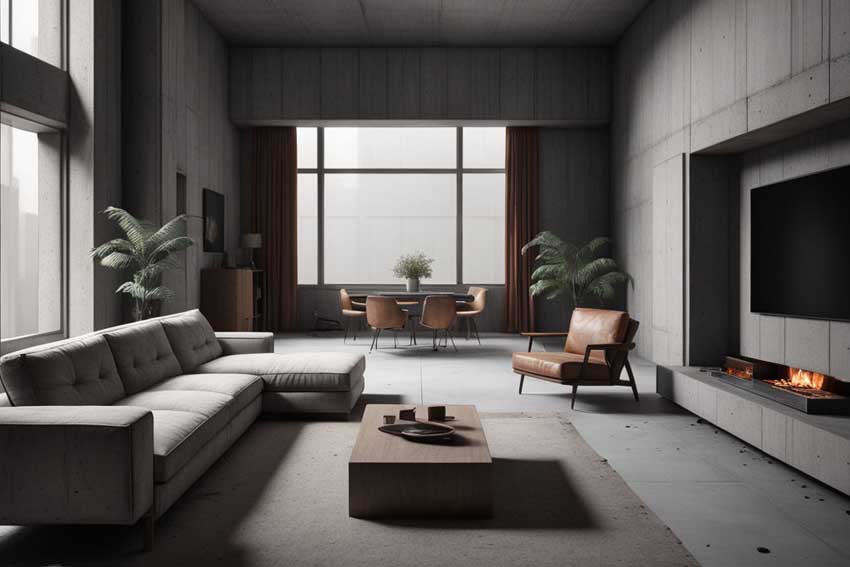Recognizing Minimalism: Techniques for Decreasing Clutter and Enhancing Quality in Everyday Living
Minimalism is increasingly identified as a viable method to enhancing quality and focus in today's cluttered globe. By systematically reviewing our possessions and focusing on intentionality, we can create spaces that not just show our worths however also advertise psychological well-being. Using techniques such as the "Four-Box" method can help with a more well organized environment, yet real difficulty hinges on cultivating a minimal way of thinking that sustains these efforts. Exploring the subtleties of this philosophy might reveal unexpected understandings right into just how you can change your life. What might you discover when you welcome this deliberate simpleness?
Defining Minimalism and Its Advantages
Specifying minimalism involves understanding it as a way of life choice that emphasizes simpleness and intentionality in both everyday regimens and physical possessions. At its core, minimalism urges people to prioritize what really matters, allowing for a more meaningful and focused presence. By removing the non-essential, minimalism welcomes individuals to engage deeply with their experiences and environments.
It cultivates mental clearness, as decreasing mess in one's setting can lead to lowered distractions and stress and anxiety. Minimalism promotes economic flexibility; by prioritizing needs over desires, individuals can make more educated acquiring choices, leading to possible financial savings and reduced financial debt.
Eventually, minimalism is not merely regarding worldly reduction yet includes an all natural shift in viewpoint, promoting a life characterized by equilibrium, objective, and satisfaction. Embracing this lifestyle can result in extensive adjustments in how individuals regard and interact with the world around them.
Evaluating Your Existing Clutter
Mess commonly materializes as an overwhelming accumulation of things that no longer serve an objective, developing a barrier to accomplishing a minimal way of living. To effectively evaluate your existing mess, it is necessary to embrace a systematic technique. Begin by determining the locations in your home that feel overwhelming or disorderly. Remember of particular categories of items, such as garments, books, or cookware, as this will help you recognize the range of the mess.

Additionally, take into consideration the frequency of use for each item. Ultimately, recognizing your current clutter is an essential action towards accepting minimalism and enhancing clearness in your day-to-day living.

Practical Decluttering Methods
Having assessed your existing mess, the following action is to execute practical decluttering strategies that assist in a more arranged living space. Minimalism. One efficient approach is the "Four-Box" technique, where you assign four boxes identified: keep, contribute, trash, and relocate. This strategy encourages fast decision-making and makes sure things are categorized properly
Another technique is the "One in, One out" guideline, which you can try here stipulates that for every new thing gotten, an existing product should be removed. This concept helps maintain balance and protects against buildup over time. Additionally, take into consideration the "30-Day Minimalism Game," where you get rid of one thing on the very first day, 2 on the 2nd, and so forth, cumulatively fostering a feeling of accomplishment.
For those who deal with emotional attachments to belongings, the "Emotional Worth" technique can be beneficial. Limitation on your own to a specific variety of treasured things, enabling you to value their value without overwhelming your area. Establish a normal decluttering routine, whether month-to-month or seasonally, to preserve a clutter-free atmosphere. By utilizing these methods, you can develop a more effective and peaceful living area, eventually boosting quality in your day-to-day life.
Developing Willful Rooms
Producing deliberate rooms involves a thoughtful strategy to exactly how we design and arrange our settings, guaranteeing each area offers a certain purpose and reflects our values. This technique is necessary in growing a feeling of clarity and function in our lives. By seriously assessing the function of each area, we can eliminate disturbances and enhance our general health.
To produce deliberate spaces, start by determining the key tasks that will happen in each location. For example, an office must be designed to foster efficiency, including components such as adequate lights, comfortable furnishings, and minimal interruptions. On the other hand, a leisure location should advertise harmony, including relaxing shades and comfy seating.
In addition, consider the emotional effect of your environments (Minimalism). Including personal items that resonate with your worths, such as art work or plants, can enhance the connection to your space. Routinely assess these atmospheres to guarantee they continue to offer their designated objective as your go to these guys needs progress
Inevitably, developing intentional areas is about making conscious selections that straighten with your lifestyle, promoting consistency and efficiency in your living and working atmospheres.
Preserving a Minimalist Frame Of Mind
Welcoming a minimalist mindset needs continuous representation and intentionality in our activities and thoughts. Set apart time to assess your commitments, belongings, and also electronic content, guaranteeing they special info align with your core principles.
This change in perspective motivates appreciation for simplicity, enhancing total well-being. Integrating mindfulness strategies, such as reflection or journaling, can even more strengthen a minimal state of mind by promoting clearness and lowering psychological mess.
Additionally, develop limits to protect your energy and time. Discover to say no to non-essential obligations and distractions that do not add to your personal development. Surround yourself with similar people that support your minimal journey, as shared values can boost inspiration and responsibility.
Verdict
In conclusion, embracing minimalism provides significant advantages, consisting of decreased clutter and enhanced quality in day-to-day life. The principles of minimalism serve as important devices for growing a setting that supports individual growth and health.

In addition, think about the "30-Day Minimalism Video Game," where you get rid of one thing on the very first day, 2 on the second, and so forth, cumulatively fostering a sense of achievement.
In verdict, welcoming minimalism uses considerable advantages, including minimized clutter and improved quality in daily life.